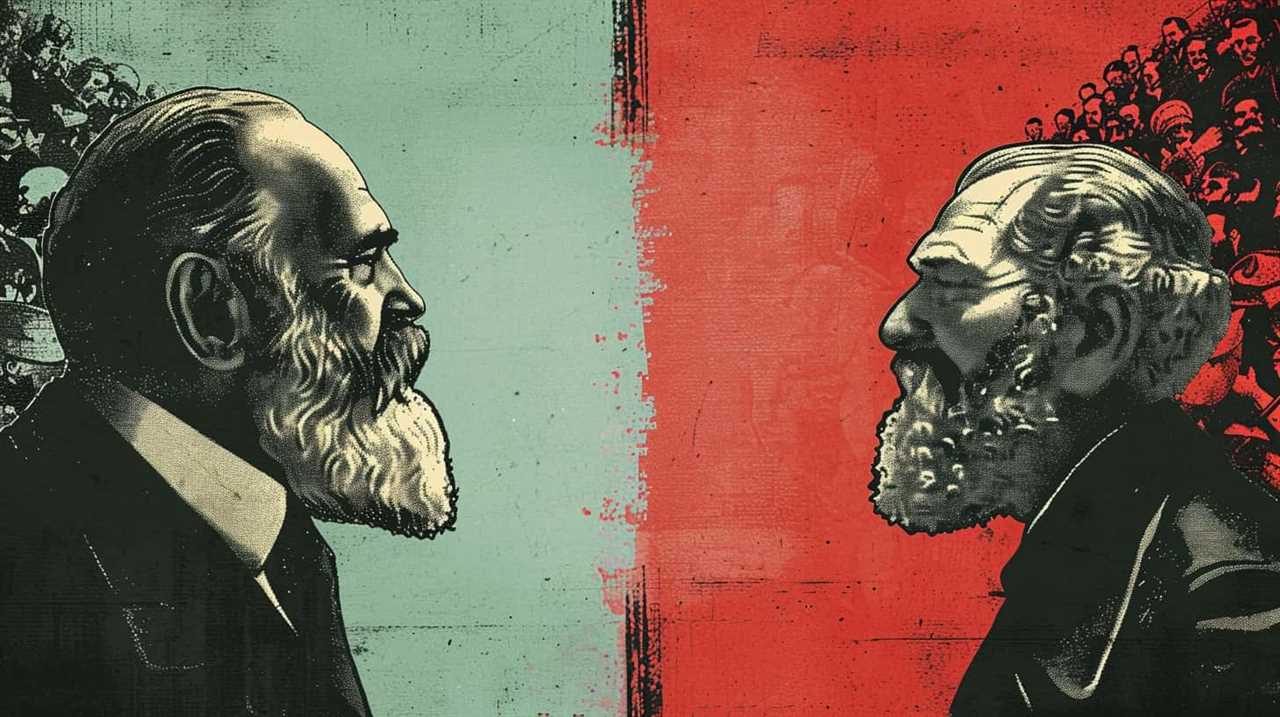As we begin our journey towards creativity, we explore the intriguing world of cognitive biases and economic knowledge through the perspective of Daniel Kahneman’s revolutionary findings.
With a keen understanding of human behavior, Kahneman has provided us with invaluable knowledge that challenges traditional economic thinking.
Anchoring bias, availability bias, framing bias, confirmation bias, and status quo bias are just a few of the cognitive mechanisms that shape our decision-making processes and impact financial choices.
By unraveling these biases, we gain a deeper understanding of market trends, consumer preferences, and the very foundations of economic systems.

Join us as we explore Kahneman’s illuminating work and unlock the potential for innovation in the field of economics.
Key Takeaways
- Cognitive biases such as loss aversion, confirmation bias, and anchoring have significant implications for consumer behavior and policy making in economics.
- Understanding and addressing biases is essential for long-term economic growth and making more informed and rational economic decisions.
- Daniel Kahneman’s research in behavioral economics revolutionized the field by revealing the influence of biases on decision-making and challenging the assumption of rational behavior in traditional economic theories.
- Cognitive biases have an impact on economic decisions, including risk-taking, the availability heuristic, biases in decision-making, the anchoring effect, loss aversion, and overconfidence in decision-making.
The Impact of Cognitive Biases
The impact of cognitive biases on decision-making and economic outcomes can’t be overstated. These biases, deeply ingrained in the human mind, have significant implications for consumer behavior and policy making. Understanding and addressing these biases is crucial for achieving innovation and progress in the field of economics.
One of the key areas where cognitive biases have a profound impact is consumer behavior. People often make irrational decisions due to biases such as loss aversion, confirmation bias, and anchoring. These biases influence consumers’ perceptions, choices, and ultimately their purchasing behavior. Marketers and businesses need to be aware of these biases in order to effectively target and influence consumer decision-making.
Furthermore, cognitive biases also play a significant role in policy making. Politicians and policymakers aren’t immune to the biases that affect the general population. Biases such as framing effects, availability bias, and overconfidence can lead to flawed policies and ineffective decision-making. Recognizing and addressing these biases is essential for creating policies that are based on sound evidence and promote long-term economic growth.
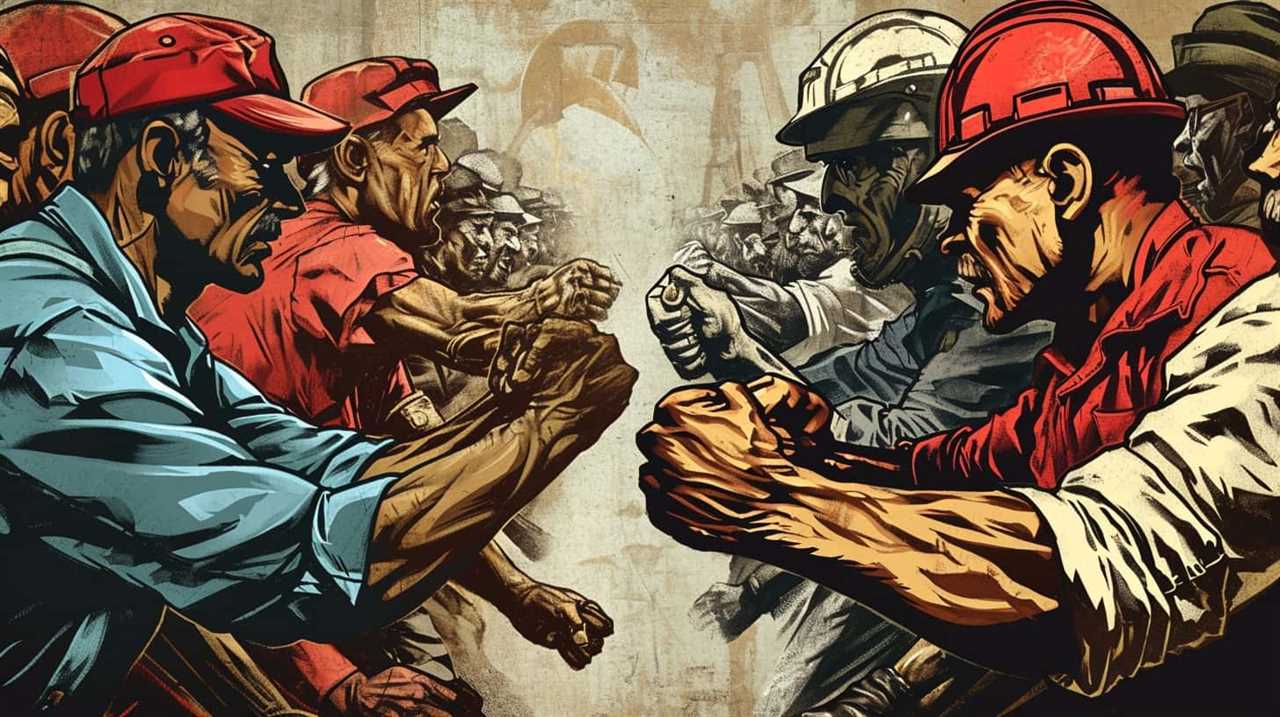
Understanding the impact of cognitive biases is the first step towards building a foundation in behavioral economics. By studying these biases, economists can gain valuable insights into the complexities of human decision-making and develop strategies to mitigate their influence. This understanding is crucial for fostering innovation and creating economic systems that truly align with human behavior and aspirations.
Understanding Behavioral Economics
Understanding behavioral economics is crucial in comprehending the intricacies of human decision-making and its impact on economic behavior.
By acknowledging the existence of biases in our decision-making processes, we can gain insight into why people often deviate from rational economic behavior.
These biases, such as the availability heuristic and loss aversion, can lead to suboptimal choices and have significant implications for market outcomes and policy interventions.

Biases in Decision-Making
We need to examine how cognitive biases impact our decision-making processes in order to gain a deeper understanding of behavioral economics.
Two key biases that play a significant role in shaping our economic decisions are anchoring bias and overconfidence bias.
Anchoring bias refers to our tendency to rely heavily on the first piece of information we receive when making decisions. In the context of financial decisions, this bias can lead us to anchor our decisions to irrelevant or arbitrary numbers, such as stock prices or arbitrary price points.
On the other hand, overconfidence bias occurs when we’ve an inflated sense of our own abilities and predictions. In economic predictions, this bias can lead us to overestimate our accuracy and make risky or irrational decisions.

Understanding these biases can help us develop strategies to overcome them and make more informed and rational economic decisions.
Impact on Economic Behavior
Continuing from our examination of biases in decision-making, let’s explore how these cognitive biases impact our economic behavior and contribute to our understanding of behavioral economics. Biases in consumer behavior play a crucial role in shaping market dynamics. These biases, rooted in our cognitive processes, can lead to irrational decision-making and have significant implications for the economy as a whole.
To better understand the impact of these biases, let’s consider a three-column table:
| Cognitive Bias | Influence on Economic Behavior | Implications for Market Dynamics |
|---|---|---|
| Anchoring Effect | Consumers’ tendency to rely heavily on the first piece of information they receive | Can manipulate consumers’ perception of value and influence pricing strategies |
| Confirmation Bias | Consumers seeking information that confirms their pre-existing beliefs | Can result in selective exposure to information, leading to market polarization |
| Loss Aversion | Consumers’ tendency to strongly prefer avoiding losses over acquiring gains | Can lead to risk-averse behavior, impacting investment decisions and market volatility |
The Role of Daniel Kahneman
Kahneman’s groundbreaking research in behavioral economics has had a profound influence on how we understand and make economic decisions. His work has challenged traditional economic theories that assume rationality and instead highlights the cognitive biases that shape our choices.

Kahneman’s Groundbreaking Research
In our exploration of cognitive biases and economic wisdom, it’s crucial to delve into the groundbreaking research conducted by Daniel Kahneman. Kahneman’s methodology revolutionized the field of behavioral economics by challenging the traditional assumption of rational decision-making. His studies revealed that cognitive biases heavily influence our choices, often leading to irrational and suboptimal outcomes.
One of the key contributions of Kahneman’s research is the identification and categorization of cognitive biases in everyday life. Through his experiments and observations, he uncovered biases such as the availability heuristic, anchoring effect, and confirmation bias, which shape our judgments and decision-making processes. Understanding these biases is essential for individuals and organizations seeking to make more informed and rational choices.
Kahneman’s work has significant implications for innovation and problem-solving. By recognizing and mitigating cognitive biases, we can enhance our decision-making abilities and foster a culture of innovation. This research challenges the notion of purely rational economic actors and provides a fresh perspective on human behavior and its impact on economic outcomes.
Influence on Economic Decisions
Our understanding of cognitive biases and their impact on economic decisions is greatly enhanced by the research conducted by Daniel Kahneman. Kahneman’s work has shed light on the influence of psychological factors in economic choices and has revolutionized our understanding of consumer behavior. Here are three key insights from his research:

- Framing Effect: Kahneman’s research has shown that the way information is presented can significantly influence our economic decisions. For example, people are more likely to take risks when a decision is framed in terms of potential losses rather than potential gains.
- Availability Heuristic: Kahneman’s work has revealed that our judgments and decisions are often influenced by the ease with which examples and information come to mind. This can lead to biases in economic decision-making, as we tend to rely on readily available information rather than conducting a thorough analysis.
- Anchoring Effect: Kahneman’s research has demonstrated that our initial exposure to a number or value can anchor our subsequent judgments and decisions. For instance, when making purchasing decisions, we may be influenced by the initial price we encounter, even if it’s irrelevant or unrealistic.
Challenging Traditional Economic Theories
By challenging traditional economic theories, Daniel Kahneman’s research has reshaped our understanding of cognitive biases and their impact on economic decision-making. His work has brought to light the flaws in neoclassical economics, which assumes rational behavior and ignores the role of cognitive biases in economic models. Kahneman’s pioneering studies on prospect theory and behavioral economics have challenged the foundational assumptions of neoclassical economics, revealing the limitations of its models in explaining real-world economic behavior.
| Challenges to Neoclassical Economics | Cognitive Biases in Economic Models | Impact on Economic Decision-Making |
|---|---|---|
| Assumption of rational behavior | Anchoring bias | Decisions influenced by emotions |
| Ignoring cognitive biases | Loss aversion | Overconfidence in decision-making |
| Limited understanding of human behavior | Availability heuristic | Biases in risk assessments |
Kahneman’s research has opened up new avenues for understanding economic decision-making, highlighting the importance of psychological factors and cognitive biases in shaping economic outcomes. This has led to the development of more comprehensive and realistic economic theories that better capture the complexities of human behavior. By challenging traditional economic theories, Kahneman has paved the way for a more innovative and nuanced understanding of economic phenomena.
Anchoring Bias and Decision Making
When considering decision making, it’s crucial to understand and address the impact of the anchoring bias. This cognitive bias occurs when individuals rely too heavily on the initial piece of information they receive, which then serves as an anchor for subsequent judgments and decisions.
The anchoring bias can have significant implications for our financial choices and overall decision-making processes.

To delve deeper into this topic, consider the following:
- Anchoring effect: The anchoring bias can influence our perception of value and cause us to make decisions based on arbitrary numerical cues. For example, when presented with a high initial price for a product, we may be more likely to perceive it as valuable, even if the actual value doesn’t align with the price.
- Overcoming the bias: Recognizing the presence of the anchoring bias is the first step towards mitigating its effects. By actively questioning and seeking alternative perspectives, we can avoid being overly influenced by the initial anchor and make more informed decisions.
- Harnessing the bias: While the anchoring bias can lead to irrational decisions, it can also be leveraged to nudge individuals towards desired outcomes. By strategically setting a favorable anchor, such as a lower price or a positive reference point, decision-makers can influence others’ judgments and choices.
Understanding the anchoring bias is essential for improving decision-making processes and promoting innovation. By being aware of this cognitive bias, we can develop strategies to overcome its influence and make more rational and effective choices.
Transitioning to the next section, let’s explore another cognitive bias, namely the availability bias, and its impact on financial choices.
Availability Bias and Financial Choices
When it comes to making financial choices, the availability bias can have a significant impact on our investments. This cognitive bias leads us to rely heavily on information that’s readily available to us, often overlooking alternative options that may be more beneficial.

Impact on Investments
Our financial choices and investment decisions can be significantly influenced by the availability bias, a cognitive bias that affects our perception of the likelihood of certain events or the prevalence of certain information. This bias can have a profound impact on our investment performance, as it leads us to rely on easily accessible information rather than conducting thorough research.
Here are three key ways in which the availability bias can affect our investment decisions:
- Overemphasis on recent events: The availability bias causes us to give more weight to recent events or information, leading us to make investment decisions based on short-term trends rather than long-term fundamentals.
- Neglect of less accessible information: We tend to rely on information that’s easily available, such as news headlines or popular opinions, while neglecting less accessible but potentially valuable information. This can lead to missed investment opportunities or a lack of diversification in our portfolio.
- Emotional decision-making: The availability bias can also amplify the impact of emotions on our investment decisions. When we see vivid or emotionally charged information, it can trigger fear or excitement, leading us to make impulsive and irrational investment choices.
Overlooking Alternative Options
In our financial choices and investment decisions, we often overlook alternative options due to the influence of the availability bias. This cognitive bias occurs when we rely heavily on information that’s easily accessible or readily available to us. Our decision-making process becomes skewed, as we give more weight to the options that come to mind first, rather than considering a wider range of possibilities.
By failing to consider alternative options, we limit our ability to make informed and optimal financial decisions. We may miss out on potentially lucrative investment opportunities or overlook alternative strategies that could better suit our goals and risk tolerance. This bias can lead to a narrow perspective and a missed opportunity for innovation and growth.
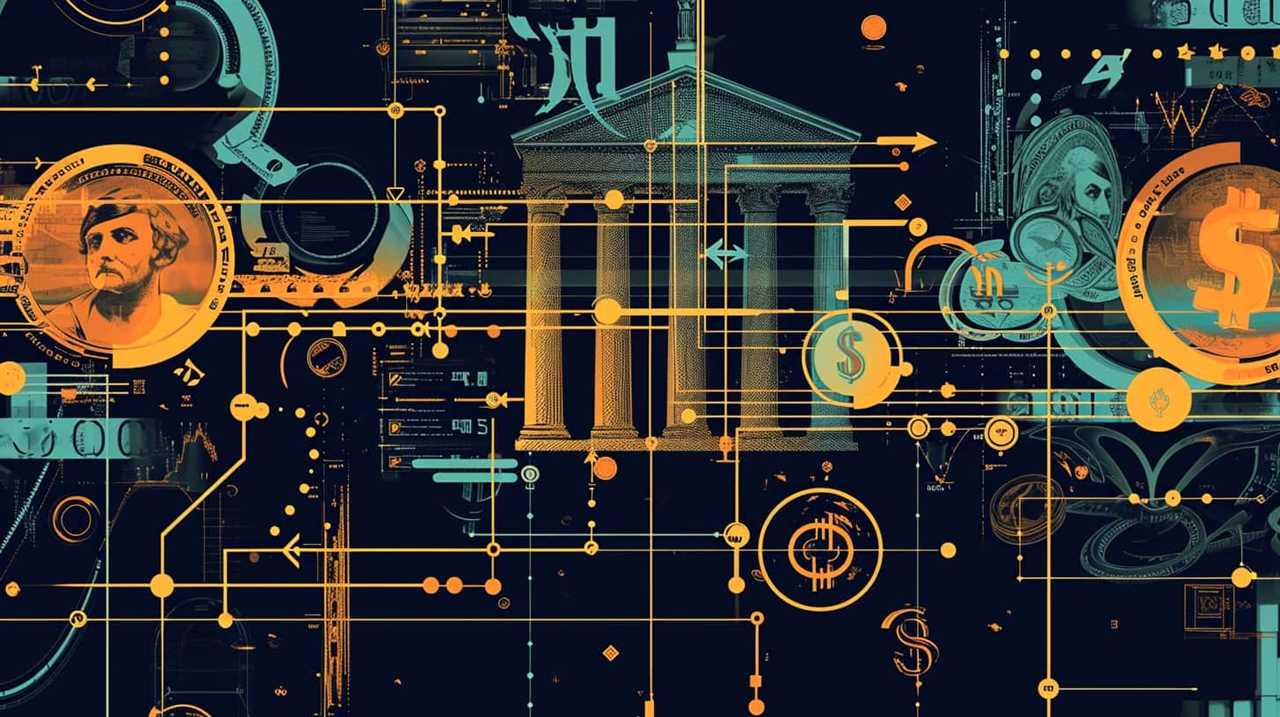
To overcome this bias, it’s crucial to actively seek out alternative options and challenge our initial assumptions. By broadening our perspective and considering a wider range of possibilities, we can make more informed and balanced financial choices.
It’s important to be aware of our decision-making biases and strive for an open and innovative mindset in order to make the most of our financial resources.
Overconfidence Bias in Economic Predictions
The prevalence of overconfidence bias in economic predictions hinders our ability to accurately forecast future outcomes. This cognitive bias, which causes individuals to have unwarranted faith in the accuracy of their predictions, can lead to significant errors in judgment and decision-making.
To convey a deeper meaning for our audience, here are three key points to consider:

- Overconfidence bias can result in overly optimistic economic predictions, leading to risky investments and financial losses. When individuals are overly confident in their ability to predict future economic trends, they may ignore or downplay potential risks and fail to make informed decisions.
- Overconfidence bias can also lead to missed opportunities. When individuals believe they have superior knowledge or expertise in economic forecasting, they may dismiss alternative viewpoints or fail to consider other potential outcomes. This narrow-mindedness can limit innovation and hinder progress in the field of economics.
- Overconfidence bias isn’t limited to individual investors or economists; it can also be observed at a macroeconomic level. Governments and policymakers may rely on overconfident economic predictions when formulating policies, leading to unintended consequences and economic instability.
As we transition into the subsequent section about ‘loss aversion and investment behavior’, it’s crucial to recognize that overconfidence bias is just one of the many cognitive biases that influence economic decision-making. By understanding and addressing these biases, we can strive for more accurate and insightful economic predictions.
Loss Aversion and Investment Behavior
Loss aversion biases our investment behavior and influences our decision-making when it comes to financial risks and potential gains. As humans, we tend to feel the pain of losses more strongly than the pleasure of gains. This cognitive bias can lead us to make irrational investment choices, as we become overly cautious and avoid taking risks that may result in losses. However, by understanding and overcoming loss aversion, we can make more informed and rational investment decisions.
One way to overcome loss aversion is through behavioral interventions in investing. For example, setting clear investment goals and diversifying our portfolio can help mitigate the fear of losses. Additionally, incorporating techniques such as dollar-cost averaging, where we invest a fixed amount regularly regardless of market conditions, can help us overcome the tendency to make emotional and impulsive investment decisions.
By implementing these behavioral interventions, we can align our investment behavior with our long-term financial goals. We can reduce the impact of loss aversion and make decisions based on rational analysis rather than emotional reactions. Overcoming loss aversion requires discipline, patience, and a willingness to think beyond short-term gains or losses.

Transitioning into the subsequent section about framing bias and consumer preferences, it’s crucial to understand how our perception of information can influence our decision-making in the realm of investments and consumer choices.
Framing Bias and Consumer Preferences
Continuing our exploration of cognitive biases and their impact on economic decision-making, framing bias plays a significant role in shaping consumer preferences. Consumer behavior is influenced by how choices are presented or framed to them, rather than the actual content of the choices themselves. This bias highlights the fact that our decision-making processes aren’t solely based on rationality and objective evaluation of options, but are heavily influenced by the context in which choices are presented.
To delve deeper into the significance of framing bias in consumer preferences, consider the following:
- Framing effects: The way options are framed can evoke different emotional responses and perceptions, ultimately influencing consumer preferences. For example, a product advertised as ‘90% fat-free’ is more likely to be preferred over the same product advertised as ‘10% fat’.
- Anchoring effect: Consumers tend to rely heavily on the first piece of information they receive, known as the anchor, when making decisions. This anchor can significantly influence subsequent judgments and choices.
- Availability bias: Consumers are more likely to prefer options that are easily accessible in their memory. This bias can be exploited by marketers through strategic branding and advertising to make their products more salient in the minds of consumers.
Understanding these cognitive biases in consumer decision-making processes can provide valuable insights for companies aiming to innovate and capture market share. By framing their offerings in a way that resonates with consumers, businesses can tap into the inherent biases and preferences of their target audience, ultimately driving sales and success.
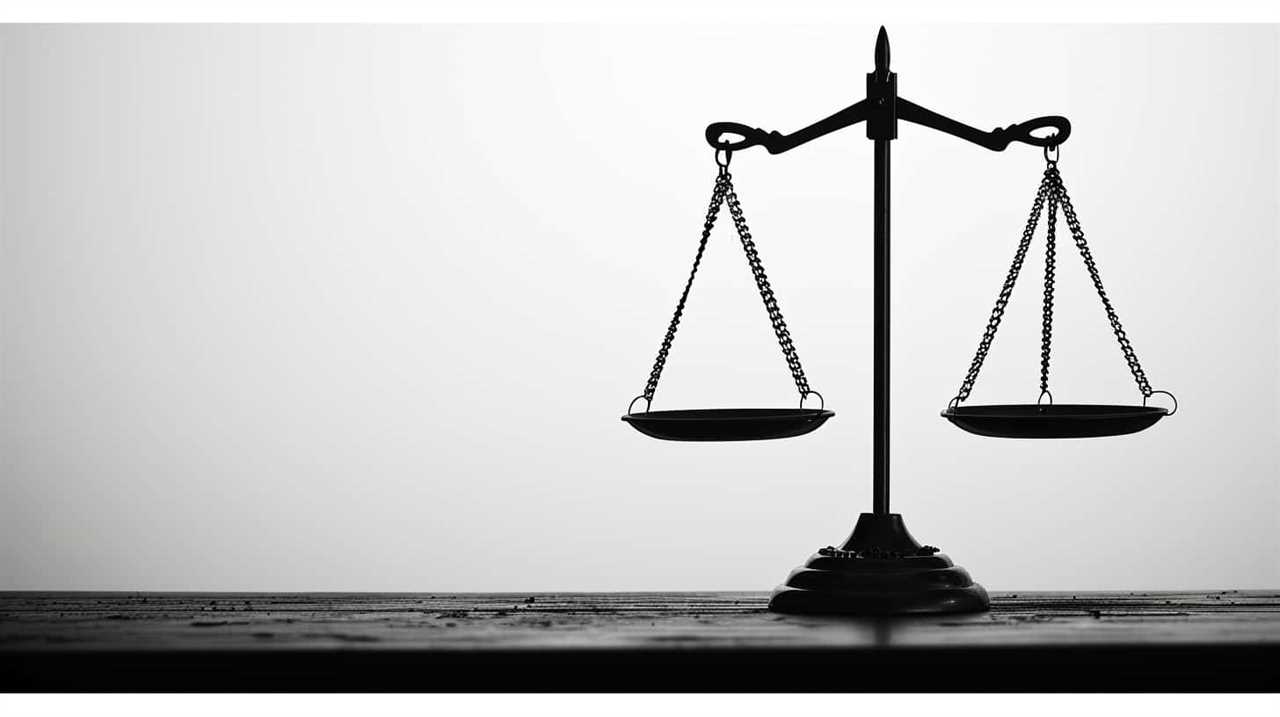
Transition: Now that we’ve explored framing bias and its impact on consumer preferences, let’s delve into another cognitive bias – confirmation bias – and its influence on market trends.
Confirmation Bias and Market Trends
Now let’s explore how confirmation bias influences market trends. Confirmation bias refers to our tendency to seek out information that confirms our existing beliefs while ignoring or dismissing information that contradicts them. This cognitive bias can have a significant impact on market trends as it affects both the behavior of individual customers and the overall perception of the market.
In politics, confirmation bias is particularly evident. People often seek out news sources and information that align with their pre-existing political beliefs. This bias can create echo chambers where individuals only hear opinions that reinforce their own views, leading to a polarization of ideas and a lack of critical thinking.
In the context of market trends, confirmation bias can be observed in customer behavior. Consumers tend to gravitate towards products or services that align with their existing preferences or beliefs. They may selectively interpret information and reviews to support their decision to purchase a particular product, ignoring any conflicting evidence.
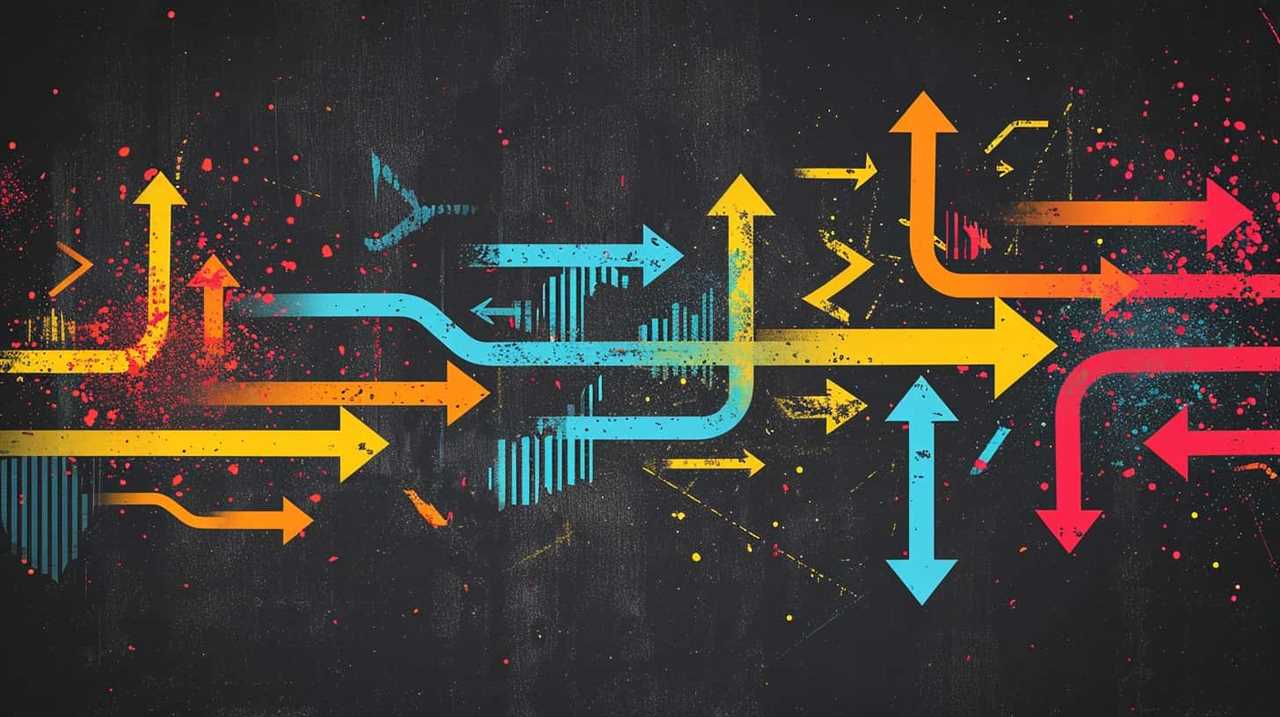
This bias can have a substantial impact on the success or failure of businesses. Companies that can tap into customers’ confirmation bias and align their marketing messages with their target audience’s existing beliefs are more likely to attract and retain customers.
As we transition to the next section on status quo bias and economic systems, it’s important to recognize that confirmation bias is just one of the many cognitive biases that influence market trends. By understanding these biases, businesses can better navigate customer behavior and adapt their strategies to meet evolving market demands.
Status Quo Bias and Economic Systems
As we delve into the concept of status quo bias and its impact on economic systems, it becomes evident that our tendency to resist change and maintain the current state of affairs significantly influences decision-making and market dynamics. Status quo bias refers to our preference for maintaining the existing situation, even when alternative options may be more beneficial. This cognitive bias can have profound implications for economic systems, shaping policies, and hindering progress.
Here are three key insights regarding the status quo bias and its effects on decision-making and economic systems:

- Inertia in decision-making: The status quo bias can lead individuals and organizations to stick with familiar choices, even when evidence suggests otherwise. This can result in missed opportunities and prevent the adoption of innovative ideas that could drive economic growth.
- Resistance to policy changes: The status quo bias can impede effective policy-making by making it difficult to implement necessary reforms. People are often resistant to changes in existing policies, even if they’re outdated or ineffective. Overcoming this bias requires careful consideration of the potential benefits and effective communication to address concerns.
- Reinforcing inequalities: The status quo bias can perpetuate existing inequalities within economic systems. By favoring the current distribution of resources and opportunities, this bias may hinder efforts to address social and economic disparities.
Recognizing the influence of status quo bias on decision-making and economic systems is crucial for fostering innovation and driving progress. By understanding and mitigating cognitive biases in policy-making, we can create more dynamic and inclusive economic systems that embrace change and adapt to evolving needs.
Prospect Theory and Rationality in Economics
With regards to prospect theory and rationality in economics, we can explore the impact of cognitive biases on decision-making and market behavior. Rationality, traditionally understood as making choices based on logical reasoning, is often assumed to guide economic decision-making. However, the field of behavioral economics, pioneered by Daniel Kahneman, challenges this assumption by highlighting the role of emotions and cognitive biases in shaping our choices.
Prospect theory, developed by Kahneman and Amos Tversky, suggests that individuals don’t always make rational decisions when faced with uncertainty. This theory posits that people are more sensitive to potential losses than gains, and that they often make decisions based on subjective perceptions of risk. This means that our emotions and biases can greatly influence our decision-making process.
In economic contexts, decision-making under uncertainty is a common occurrence. Investors, for example, face uncertainty when deciding whether to buy or sell stocks. Understanding the role of emotions and cognitive biases in these decisions is crucial for accurately predicting market behavior.

Frequently Asked Questions
How Do Cognitive Biases Affect Decision Making in Everyday Life Outside of the Economic Context?
Cognitive biases have a profound impact on decision making beyond the economic realm. In personal relationships, biases like confirmation bias and availability heuristic can lead to misunderstandings. In healthcare decision making, biases like anchoring and framing can influence treatment choices.
Are There Any Strategies or Techniques That Can Help Individuals Overcome Cognitive Biases and Make More Rational Economic Decisions?
Strategies and techniques can help us overcome cognitive biases and make more rational economic decisions. By recognizing our biases, seeking diverse perspectives, and using decision-making frameworks, we can navigate complex choices with clarity and innovation.
Can Cognitive Biases Be Beneficial in Certain Economic Situations?
Cognitive biases can have both advantages and disadvantages in economic decision making. Exploring their role in economic forecasting can provide insights into how these biases can be harnessed for innovation and improved decision making.
How Can Businesses and Policymakers Mitigate the Negative Impact of Cognitive Biases on Economic Outcomes?
To mitigate the negative impact of cognitive biases on economic outcomes, businesses and policymakers should implement strategies for cognitive bias mitigation. By recognizing and addressing these biases, we can ensure more rational and informed decision-making processes.

Are There Any Specific Industries or Sectors That Are More Susceptible to the Influence of Cognitive Biases, and if So, Why?
Certain industries or sectors may be more susceptible to the influence of cognitive biases due to factors such as high levels of uncertainty, complex decision-making processes, or intense competition, which can cloud judgment and lead to irrational decision-making.
Conclusion
In conclusion, the work of Daniel Kahneman has shed light on the impact of cognitive biases on economic decision-making.
By understanding these biases, we can better comprehend and navigate the complexities of behavioral economics.
Kahneman’s research has revealed how biases such as anchoring, availability, framing, confirmation, and status quo can influence our financial choices and consumer preferences.

This knowledge challenges traditional notions of rationality in economics and prompts us to question the validity of our own beliefs and assumptions.
Lauren’s talent in writing is matched by her passion for storytelling. Her love for books and deep understanding of culture and entertainment add a distinct flavor to her work. As our media and press contact, Lauren skillfully bridges the gap between afterQuotes and the broader media landscape, bringing our message to a wider audience.





